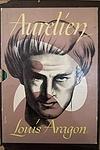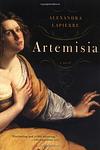The Greatest Italian, French, Japanese "Historical fiction" Books From 1940 to 1949
Click to learn how this list is calculated.
This list represents a comprehensive and trusted collection of the greatest books. Developed through a specialized algorithm, it brings together 305 'best of' book lists to form a definitive guide to the world's most acclaimed books. For those interested in how these books are chosen, additional details can be found on the rankings page.
Genres
Historical fiction is a genre of literature that combines fictional stories with real historical events, settings, and characters. These books often take place in a specific time period and are based on research and factual information, but also include imaginative elements to create a compelling narrative. Historical fiction allows readers to experience the past in a unique and engaging way, while also providing insight into the social, cultural, and political issues of the time.
Countries
Date Range
Reading Statistics
Click the button below to see how many of these books you've read!
Download
If you're interested in downloading this list as a CSV file for use in a spreadsheet application, you can easily do so by clicking the button below. Please note that to ensure a manageable file size and faster download, the CSV will include details for only the first 500 books.
Download-
1. The Case of Comrade Tulayev by Victor Serge
"The Case of Comrade Tulayev" is a political novel set in the Stalinist era of the Soviet Union. The story begins with the murder of a high-ranking Soviet official, Comrade Tulayev, which sets off a series of events leading to the arrest and execution of innocent people. It provides an in-depth exploration of the paranoia, fear, and injustice that characterized Stalin's regime, showing the human cost of political purges and the absurdity of the bureaucratic system.
The 833rd Greatest Book of All Time -
2. The Makioka Sisters by Junichiro Tanizaki
"The Makioka Sisters" is a novel set in pre-World War II Japan, following the lives of four sisters from a once-wealthy Osaka family. The story focuses on their struggles to maintain their traditional lifestyle and status in a rapidly changing society. The two elder sisters are concerned with finding a suitable husband for the third sister, while the youngest sister, more modern and independent, resists the constraints of her family's expectations. The book provides a detailed and nuanced exploration of the clash between tradition and modernity in Japanese society.
The 1360th Greatest Book of All Time -
3. Kaputt by Curzio Malaparte
"Kaputt" is a semi-autobiographical novel that portrays the bleak and disturbing experiences of the author during World War II. The narrative is set in Eastern Europe and offers a vivid depiction of the war's atrocities, including the Holocaust, as seen through the eyes of a war correspondent. The book is known for its surreal and grotesque imagery, combined with the author's sharp and cynical observations of the war's impact on humanity.
The 1504th Greatest Book of All Time -
4. Aurélien by Louis Aragon
"Aurélien" is a novel set in post-World War I Paris, following the life of the protagonist, a war veteran, who falls in love with a woman he sees in a café. However, the woman is already engaged to a friend of his, leading to a tumultuous love triangle. The book explores themes of love, war, and the struggle of the human condition, presenting a vivid picture of the social and political landscape of Paris during the 1920s.
The 2042nd Greatest Book of All Time -
5. The Harvesters by Cesare Pavese
"The Harvesters" is an evocative tale set in the rural landscapes of Italy in the early 20th century. The narrative follows a young man who, after a life of hardship and poverty, leaves his village to seek a better life in the city. However, he soon finds himself drawn back to his roots, yearning for the simplicity and authenticity of rural life. The novel explores themes of identity, belonging, and the eternal conflict between progress and tradition, offering a poignant portrayal of the human condition.
The 2452nd Greatest Book of All Time -
6. Artemisia by Anna Banti
"Artemisia" is a historical novel that delves into the life of Artemisia Gentileschi, a pioneering female painter of the Baroque era, who overcame the constraints of her time to achieve artistic greatness. The narrative intertwines the author's own reflections and struggles with the story of Artemisia, creating a rich tapestry that explores themes of feminism, creativity, and resilience. As the protagonist confronts personal tragedy, including a notorious rape trial, and battles societal norms, her journey of self-discovery and determination to succeed as an artist in a male-dominated world is poignantly portrayed, offering a profound meditation on the intersection of history, gender, and art.
The 3464th Greatest Book of All Time -
7. Silence de la Mer by Vercors
The novel is set during the German occupation of France in World War II and tells the story of an older man and his niece who are forced to host a German officer in their home. The pair respond to their unwanted guest by maintaining a strict silence, refusing to engage in conversation with him. Despite their resistance, the German officer, who is cultured and sophisticated, shares his love of French culture and his hopes for a peaceful Europe. The story explores themes of resistance, occupation, and the power of silence.
The 3607th Greatest Book of All Time -
8. Silence Of The Sea by Jean Bruller
The book is a poignant wartime novella that tells the story of a German officer who is billeted in the house of a Frenchman during the Nazi occupation of France. The French family chooses a powerful form of resistance: complete silence. They never speak to the officer, who is cultured and refined, and who struggles with his role in the war and the occupation. Despite the lack of verbal communication, the officer opens up about his feelings and thoughts, revealing his humanity and the tragedy of war. The narrative explores themes of resistance, the human condition, and the profound impact of nonviolent defiance.
The 5243rd Greatest Book of All Time -
9. The Woman Of The Pharisees by François Mauriac
The novel is a penetrating character study set in early 20th-century France, told through the eyes of a young man reflecting on his past. It centers around a devoutly Catholic woman, whose outward piety and strict adherence to religious principles mask a deep-seated pride and a penchant for manipulation. As the narrator recounts his experiences with this woman, who is closely associated with his family, the narrative explores themes of hypocrisy, morality, and the complex interplay between religion and human nature. The woman's influence on those around her leads to various personal tragedies, revealing the dangers of self-righteousness and the often harsh judgment she imposes on others in the name of virtue.
The 7180th Greatest Book of All Time -
10. Women Of Messina by Elio Vittorini
The novel explores the lives of a group of Sicilian villagers who return to their hometown after it was destroyed during World War II. As they rebuild their community amidst the ruins, they form a utopian society based on principles of equality and cooperation. However, their idealism is tested by internal conflicts and external pressures, including the influence of a mysterious woman who arrives in their midst. The narrative delves into themes of social reconstruction, the power of human solidarity, and the challenges of creating a new society while grappling with the scars of the past.
The 7180th Greatest Book of All Time -
11. The Skin by Curzio Malaparte
This book is a vivid and harrowing account of the liberation of Naples by the Allies during World War II, as seen through the eyes of the author, who serves as a liaison officer with the American forces. It delves into the moral and physical decay that war brings to a city and its inhabitants, exploring themes of survival, the price of liberation, and the complex relationship between conquerors and the conquered. Through a series of grotesque, often shocking episodes, the narrative portrays the desperation and degradation of a society stripped of dignity, where human skin becomes a metaphor for the erosion of humanity itself. The work is a powerful, if unsettling, examination of the human condition under the extreme pressures of war, betrayal, and occupation.
The 9882nd Greatest Book of All Time
Reading Statistics
Click the button below to see how many of these books you've read!
Download
If you're interested in downloading this list as a CSV file for use in a spreadsheet application, you can easily do so by clicking the button below. Please note that to ensure a manageable file size and faster download, the CSV will include details for only the first 500 books.
Download









